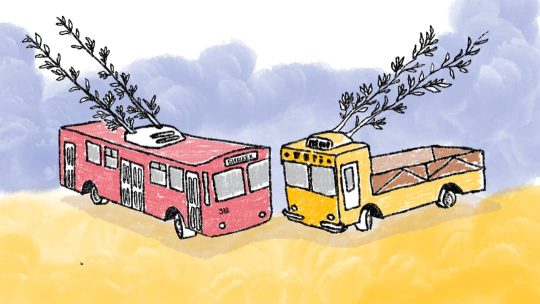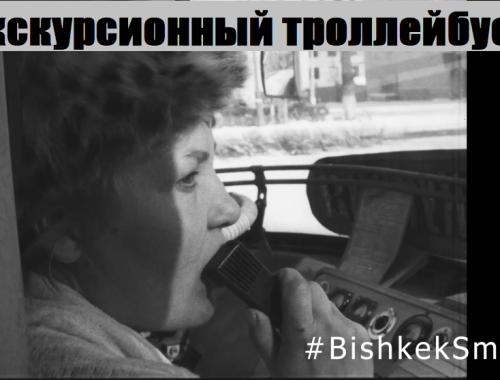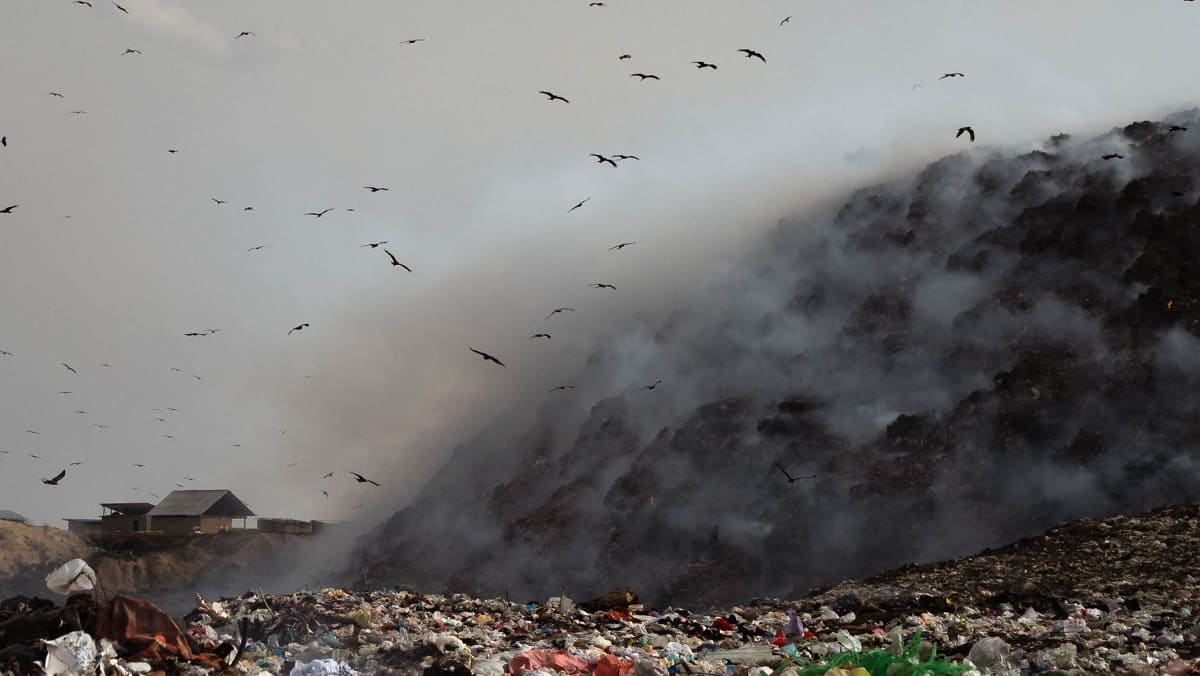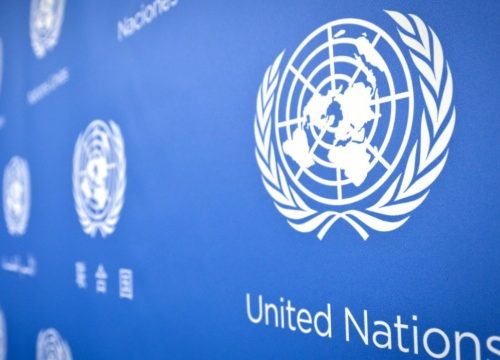
IfL Visiting Fellowship — Mobility transition in Central Asia: sustainability, power and International financial institutions
Visiting Fellows Programme — 2025
The Leibniz Institute for Regional Geography in Leipzig (IfL) Leibniz-Institut für Länderkunde
The CoMoDe project “Contentious Mobilities: Rethinking
Mobility Transitions through a Decolonial Lens (CoMoDe)”
Mobility transition in Central Asia: sustainability, power and International financial institutions
(Bishkek Trolleybus case-study)
Introduction, concept, actuality
Presented at the PUTSPACE Conference “Public Transport as Public Space” in Brussels, Belgium my research about the history of the Trolleybus had a wide impact on my interest in sustainable transportation and brought me to the current point of public campaign on saving the Bishkek trolleybus and studying International Financial Institute mechanisms to protect citizens interests. This research is also the ongoing study of air pollution and transport policy that I started with my master’s thesis “Urban growth, transport system and environment: Bikeshare practices in Moscow and Vancouver (2014-2015)” which I completed during the Master program Political Analysis and Public Policy at the Department of Public Policy of the Faculty of Social Sciences at the National Research University Higher School of Economics in Moscow.
The collapse of the Soviet Union caused many social and economic changes in the region and made it dependent on international financial institutes as developing banks. To purchase new urban fleets city has to take loans that give foreign consultants to decide what is “the best solution” for the city. While Bishkek trolleybusses are only one of the most environmentally-friendly transportation modes with a 74-year history and should be kept as a historical and touristic adventure that has a specific and special relation to Bishkek Swiss consultants from Grutter Consulting company said that is old and new Chinese e-buses the best solution for the city.
In recent years, public concern has grown over rising levels of air pollution in Bishkek. According to IQAir, an air quality information platform, Bishkek often ranks among the world’s most polluted cities. To address this issue, Bishkek City Hall plans to purchase 120 electric buses as well as a fleet of compressed natural gas buses. It also seems increasingly likely that these new buses will replace the city’s most environmentally friendly mode of transportation – the trolleybus. Bishkek’s iconic trolleybus system, operated by a municipal enterprise called Bishkek Trolleybus Department, is currently Kyrgyzstan’s only form of electric public transport. To finance the transition, the Asian Development Bank (ADB) has approved USD 50.65 million package for Kyrgyzstan’s Urban Transport Electrification Project (UTEP). This includes a USD 25 million loan, a USD 25 million grant, and an additional USD 650 000 in co-financing from the High-Level Technology Fund, a financial mechanism operated by the ADB.
Transport, Environment and International Climate Funds Policies
This study is questioning the importance of sustainable transport transit in Central Asia caused by the environmental and climate crisis. Kyrgyzstan is one of the important areas because it is located in the Tian-Shian mountains and has an important glacier for the whole Central Asia region as a source of water and should be preserved at high altitudes.
Two International Financial Institutions such as EBRD and ADB refer to sustainable development and climate issues on their front pages.
EBRD has an umbrella concept “Green Cities Action Plan” that takes a broad approach to identifying and prioritizing environmental challenges and connecting them with infrastructure investments and policy measures. EBRD Green Cities Action Plan this is 7 billions EUR for 50 cities for 93 projects mobilized by EBRD and Donors finance https://ebrdgreencities.com/.
Thanks to BankWatch Network was developed the guide on how to be involved to this GCAP and I want to study it more with our CoMode collegues together and think on strategy how we can implement it in our academic and research work. https://bankwatch.org/gcap#EN.
ADB represents itself as the biggest Climate Bank in Asia and the Pacific which means that ADB receives donor support for projects using climate funding “to protect ecosystems and communities, and enhance livelihoods and opportunities, amid accelerated glacial melt”. That is why ADB has a number of global standards that are represented in their Safeguard mechanisms and other documents that rely on environmental safety. ADB climate policy in Kyrgyz Republic is represented in this article “The Roof of the World is Melting: What Asia Faces as Climate Change Accelerates Glacial Melt” which confirms the alarming necessity of saving Central Asian glassuers as a strategic goal for saving the region. Here also important to understand how they going to work with local communities and their participation in the situation of authorized governments and shrinking of civic space https://www.adb.org/climatebank/glacial-melt
Case study of Bishkek Public Transport Projects implemented by International Financial Institutions — EBRD & ADB.
Because EBRD and ADB are giving the loan to Kyrgyz Republic also for Green Mobility I think it is important to research this case study, especially in a situation when EBRD loan for trolleybuses totally wasted because of ADB loan that will bring e-buses for the city. In total EBRD and ADB have projects 100 mln $ for Green Transport Transit isung climate money from Board Governors. It is a good example, where we can track bank responsibilities, rhetorics and accountability mechanisms to protect the urban environment and sustainable transportation.
Bishkek is one of the city with dirtiest cities in the world. According to the UNDP’s last research air pollution caused around 13% of deaths and transport is 30-40 % of this pollution. Old cars, pollution by fossil fuels, and lack of public transportation make this problem much worse. For 1,3 mln citizens we have around half a million cars and city management do everything to increase the number of car users by ignoring basic needs on public transport and urban development. The neoliberal paradigm brings transit toward policy — public transport should bring profits for municipal companies following market economy principles. That is why the Bishkek trolleybus company was recognized as non-efficient and should not exist do not look like it is the most sustainable transportation in the city now with more than 600 workers.
Map of dismantling trolleybus lines in Bishkek after ADB project starts “Public Transport Electrification Project”.
In 2024 Bishkek City Hall decided to dismantle the trolleybus system in the city; transfer the equipment and vehicles to Osh; and substitute the trolleybuses with electric buses. Do not look at the citizens’ protests. The municipal Bishkek Trolleybus company is continuing to dismantle the trolley wires while citizens go through endless court processes.
EBRD and ADB play important roles in policy dialogue and planning of green transport in Bishkek, for example, through the Green City Action Plan and the Sustainable Urban Mobility Plan. Moreover, the two banks are heavily invested in public transport and mobility projects in Bishkek and Kyrgyzstan but officially claimed that they have no impact on this situation.
List of the last urban mobility loans for sustainable transportation in Bishkek
| year | project | Euro / USD | Cost & Status | notes |
| EBRD | ||||
| 2024 | Osh Electric Public Transport | EUR 14,740,000
Sovereign loan: Tranche I (committed) of up to € 9.0 million and Tranche II (uncommitted) of up to € 5.7 million; Investment grant: Tranche I of up to € 5.0 million from the EBRD Shareholder Special Fund (SSF) and Tranche II of up to € 3.3 million from an initial donor or the SSF. |
EUR 23mln
Approved |
GrCF2W2
The Project will allow to integrate a new residential area of the city into the municipal public transport network, improving service quality and reliability. It will further contribute to a transport modal shift from using private vehicles towards inclusive public transport. |
| 2020 | Bishkek Buses | EUR 25,000,000.00
Sovereign loan in two tranches: Tranche I of € 16 million Tranche II of € 9 million. Capital grant: € 8 million from the EBRD Shareholder Special Fund (SSF) and/or international donors. |
EUR 33mln
Disbursing |
GrCF2W2
new lower-emissions CNG buses (to replace diesel ones): reliability and quality of public transport services, air quality, GHG emissions, depot renovation, significantly expand its operational fleet, resume service on all abandoned routes, new routes in recently developed city areas; modal shift from private cars back to public transport; contribute to efforts to fight the Covid pandemic through the replacement of minibuses on City routes with long buses and additional measures: (i) better social distancing; (ii) reduction of passengers’ contact with drivers; (iii) regular disinfection; etc. |
| 2014 | Osh Public Transpor | EUR 5,700,000
Sovereign loan co-financed with a EUR 3.1 million grant from an international donor. |
EUR 9,6mln
Repaying |
Purchase of 20 new low floor trolleybuses, power supply infrastructure components and maintenance equipment for the trolleybus system as well as the acquisition of 24 high capacity buses. The Bank will monitor the following indicators before and after project implementation: (1) Total number of urban transport passengers to increase from 44,000 per day to 82,000 after project implementation, and (2) Annual reduction in tonnes of CO2 equivalent thanks to improved public transport operations. |
| 2011+ 2015extension | Bishkek Public Transport | USD 15,000,000
2011: sovereign loan of USD 10 million
2011: USD 5.5 million grant from intnl donor
2015 Extension: sovereign loan of USD 5 million
2015: EUR 2.9 million EBRD SSF Grant |
USD 16mln (2011)
USD 8.4mln (2015) Complete |
2011: purchase of 79 new trolleybuses and a partial rehabilitation of the related infrastructure; introduction of e-ticketing.
2015: purchase of 49 new low floor trolleybuses. EBRD supported Gender Action Plan focusing on: Incorporating gender mainstreaming report findings into the Project; Organizational strengthening and institutional capacity building of secondary stakeholders; Employment and Livelihood Enhancement Opportunities; Vulnerable Groups and Affordability. |
| ADB | ||||
| 2021 | Urban Transport Electrification project | USD 25 mln loan
Concessional ordinary capital resources lending USD 25mln Grant: Asian Dev Fund USD 650,000 Grant: High-Level Technology Fund |
USD 50mln
Active |
Set to address cities high pollution levels, was to replace some of outdated trolleybuses and upgrade the trolleybus depots. Outputs include: (i) zero-emission tailpipe bus fleet in Bishkek municipality upgraded; (ii) bus depot infrastructure upgraded; (iii) pilot green mobility corridor established; and (iv) Bishkek bus operation sustainability improved |
As a result, the city took 100 mln $ for the development of Green transit and decarbonization and destroying most environmental transport violating their own policies and loan agreements. The important question here is about the role of civil communities that totally repressed by National authorities pressing for freedom of association and human rights. I want to calculate CO2 emissions implant and write algorithms on how to deal with IFIs in case of emergencies and complaints.
Goals of the Proposed Research and Further work
For research, I want also to have access to the Leibniz Institute for Regional Geography in Leipzig (IfL) and the archive to study more about the history of electric transport because the trolleybus was born in Germany. The library and archive will help me to show up the development of electrical transportation through the Contemporary lens of academic study and the actual transport situation in the region and the world. For me it is important to have this access to this archive to learn more about theory of sustainable mobility and historical background of electric transportation and its contemporary actuality.
I also want to conduct a number of workshops with colleagues from IfL about sustainable transportation and the role of IFI in the development of green transit including public presentation of the research. The idea of the workshop is not about teaching, but study together interconnection of the Central Asian region with the EU, the United Kingdom, the Philippines, and China through financial mechanisms in urban development. The practice will include mapping of our resources and discussing how scholars, NGOs, communities and workers can do join affords to make an impact in the current situation and in the future.
This research will be used to develop after my Visiting Fellowship in Kyrgyzstan to strengthen our urban and eco-activist communities. I would like to conduct a presentation with the results of my work during the Visiting Fellowship program in Bishkek to put more attention on global; mechanisms to protect the urban environment. It is very urgent now because Bishkek soon will develop and approve the General Plan for the city, including transportation planning.
In the future, I will use the results of the Visiting Fellowship program to create an exhibition about Bishkek Trolleybus where there will be a critical history of trolleybuses in Frunze and about contemporary public transport system trolleybuses in Bishkek. On 28 March 2020, we planned to open the exhibition “Kiyinki Ayaldama” (translated from the Kyrgyz language “Next Stop”) and because of COVID, it was canceled just before we started, but I think it is important to present it now.
For this moment I have initiated two processes in the National Courts on trolleybuses and also we are working to support 600 workers who left without any income while in Banks’ agendas social support and gender criteria one of the most highlighted and there were millions $ to support women employment that everything was wasted for now.
The situation of defending trolleybuses is getting more difficult when it is more authorized government and drinking public space. I was arrested when we came for “open” public hearings at the city parliament meeting after they accepted the decree to give away 100 fleets and we had to apply to the court and many of our gatherings were limited by police which is why maybe it will be a bit safe space for me for several months why things go worse and many activists were arrested in Kyrgyzstan.
Bermet Borubaeva
Borubaeva Bermet — researcher& public policy analyst on the urban environment and transport policy, founder of initiative #BishkekSmog. Co-founder of the Bishkek School of Contemporary Art. Member of UrbanHubBishkek Association and BankWatchNetwork.
bishkek.smog@gmail.com, What’s up +996500527484
#BishkekSmog
The initiative #BishkekSmog appeared in 2019 as a reaction to the big air pollution crisis in Bishkek. It is a self-organized and self-financed civic initiative that aims to protect the environmental rights of Kyrgyz citizens on local and international levels. https://bishkeksmog.info/2024/04/29/contactnfo/
BERMET BORUBAEVA
Short BIO: Bermet Borubaeva/ Researcher, Public Policy Analyst, curator/ Profile: Born in Kyrgyzstan, Bishkek. Bermet Borubaeva is an independent researcher and public policy analyst. She has several publications in the fields of political science, public policy, and art. Currently works as an independent researcher, and analyst of environmental issues, publishing articles and curating ecological and art initiatives.
Master’s thesis: “Urban growth, transport system, and environment: Bike-share practices in Moscow and Vancouver (2014-2015)”, National Research University Higher School of Economics, The Master program “Political Analysis and Public Policy” https://www.hse.ru/edu/vkr/153012053
Research interests: public policy, urban environment & transport policy, political ecology, political participation, political economy, bike-sharing systems
Short bio: Participant in regional and international research projects, co-founder of eco-defense and artistic initiatives: the initiative group of reclamation of Bishkek city landfill; Initiator of #BishkekSmog campaign and co-director of a documentary film #BishkekSmog about air pollution in Bishkek; Co-founder of the Bishkek School of Contemporary Art (www.bishci.com).
Education (Academic and non-academic)
2025 — Training training program on Ecology and Water Resources by the Institute for War & Peace Reporting & Cabar Asian Bureau for Analytical Reporting, Almaty.
2013 – 2015 National Research University Higher School of Economics, Master program at the Sociology Department “Political Analysis and Public Policy” (Moscow, Russia)
2011 – 2013 Kyrgyz-Russian Slavic University. Master’s program of Political science at the International Relationship faculty (Bishkek, Kyrgyz Republic).
2006 – 2011 Kyrgyz-Russian Slavic University. International Relationship faculty. Bachelor of Political science (Bishkek, Kyrgyz Republic).
2011-2013 Graduated from the School of Public Policy organized by the Consortium of Analytical Organizations and the National Academy of Public Administration under the President of the KR
2013 Curatorial research residency at the “Artists in Residence Laboratory” in Centre for Contemporary Art Ujazdowski Castle (Warsaw)
2011 GlobalArtLab Program initiated by CEC ArtsLink. Art exchange program in New York 2009 Summer School Mobile Architecture Kunstford Vijfhausen in the Kingdom of Netherlands.
2009 Student of School of Contemporary Art of “ArtEast”, Bishkek.
Conference and Certificates
2024 T2M Annual Conference | Mobilities and Infrastructures: Transitions and Transformations, Leipzig, Germany,Lancaster University Leipzig. Trolleybuses VS Electrobuses in Bishkek: how to survive between two investment banks. Leibniz-Institut fur Landerkunde
2024 The 10th Annual Life in Kyrgyzstan Conference 2024. Resilient city: Building Urban Environment Defense Women communities in Kyrgyzstan. Organizers: University of Central Asia (UCA), Kyrgyz Republic, The Leibniz Institute of Vegetable and Ornamental Crops (IGZ), Germany
International Security and Development Center (ISDC), Germany
2024 IV International conference of research and discussion “Esimde”, Bishkek, Kyrgyzstan. Air pollution in Bishkek and the policy of dismantling the trolleybus network.
2023 “Knowledge Production in Public Transport – Normativities. Actors. Outcomes” in Tbilisi, Ilia State University organized by Leibniz research group “CoMoDe – Contentious Mobilities: Rethinking Mobility Transitions through a Decolonial Lens”.
2022 Recognition certificate «For demonstrating «green» leadership on waste management issues and supporting environmental conservation initiatives» by Wastenet.kg
2022 Public Transport as Public Space — PUTSPACE Conference in Brussels, Belgium, presentation research about trolleybuses in Frunze, comparative analysis with contemporary public transport system in Bishkek https://putspace.eu/brussels-2022/
2021 The Seventh Life in Kyrgyzstan (LiK) conference. The Conference was organized by UCA’s Institute of Public Policy and Administration (IPPA), the Leibniz Institute of Vegetable and Ornamental Crops (IGZ), and ISDC — International Security and Development Center in partnership with the American University of Central Asia, Mercy Corps, the World Bank, and United Nations Population Fund. Video-record of reports here.
2020 Anthropology Club Meetings. “The breath of the city. Air Pollution Accounting Methods and Civil Participation Practices” (with Dinara Kutmanova, currently Head of
Ministry of Environment of Kyrgyz Republic) https://www.auca.kg/en/2019_2020/
2017 — Award in Competition for the best coverage of the «green» economy among the mass media of Kyrgyzstan» by Ministry of Economy of the Kyrgyz Republic October 31 with the support of GIZ and UNDP projects http://mef.gov.kg/ru/post/4787
2012 Certificate after participation in the scientific-practical project of Gorchakov Foundation “Novosibirsk School of Young Experts” http://gorchakovfund.ru/expert-school/about/ 2012 Certificate “Best tutor”, School of Public Policy, Bishkek (21 June)
2012 Certificate of a participant of annual student conference “Economy of the region:
integration processes and economic development”, American University of Central Asia, 3 May.
2013 Diploma of academic Master degree in Political Science “Politology”. State educational
institution of high education Kyrgyz-Russian Slavic University, Faculty of International Relations (Bishkek)
2011 Diploma № CF110001000 of academic bachelor degree in Political Science “Politology”.
State educational institution of high education Kyrgyz-Russian Slavic University, Faculty of International Relations (Bishkek)
2011 November. Central-Asian Conference “Artist-in-Society”, Bishkek. Initiated by Cultural
Center “Bactrija” in Tajikistan
2011 International Science-Practice Conference conducted by Ministry of Youth Affairs “Social Partnership”. Report and publication in Resolution Materials
2011 Analytical Document’s Presentation of School of Public Policy project in the Academy of Management under the President of the Kyrgyz Republic. Certificate, Bishkek.
2010 American University of Central Asian — Certificate. The report in the Social Science Student Conference «Twenty Years of Transition in Central Asia: Challenges, Trends and Patterns»
2009 SIFE (Students in Free Enterprise) — Certificate (active participating in The National SIFE Competitions)
Writing Samples
2024 Governing ‘Green’ Public Infrastructure: The Trolleybus Case in Bishkek. Kin City.
2024 Bishkek’s electric trolleybuses under threat from ADB-funded trnsport overhaul. Bankwatch Network
2024 Guide for women cyclists. Solidarity, Equality and Freedom, the Bishkek School of Contemporary Art Press, 2024, 161 pages.
2021 Kyrgyzstan 2020: Worker protests and labor rights // Central Asian Program
2020 — Kirgistan — Vom Corona-Kollaps zum Umsturz nach den Wahlen//Bildundswerk-Berlin.
2020 — Between Food, Art, and Politics https://easteast.world/en/posts/100
2019 — “Biopolitics and the Political Economy of Food Production: The art and life experience of a Central Asian migrant cultural worker in Moscow” // Nominal Bliss
2019 — A Reverse strip-tease upsets an International Feminist art show in Kyrgyzstan// Russian Art Focus https://14thissue.russianartfocus.com/kyrgyzstans-scandal-struck-first-feminnale/
2014 — Zentralasien: Von der Unabhängigkeit zur kapitalistischen Mehrfachausbeutung.
2014 — Essay. Urban growth and environment: the role of institutions. “Practice at Baltics”
2011 — Borubaeva Bermet, Chekirova Gulnura. Open new opportunities for energy-efficient
the economy in Kyrgyz Republic // Analytical Document. – School of Public Policy (Bishkek)
2010 — Does Kyrgyzstan need to enter the Customs Union? Pro & Contra // Report on Annual Student Conference in AUCA “Region’s Economy: intergenerational processes and economic
development”
Work Experience & Professional Activities
2024 — Fellowship at bankWatch Network, Georgia, Tbilisi
2020 — 2023 — Research Assistant¨ in a project Survey about Climate inequality at the Public Foundation “Green Energy” supported by the Global Environment Faculty (GEF) Small Grants Programme by the United Nations Development Programme (UNDP) (Bishkek)
2018 — 2020 Head of the column in newspaper «Labour» (“Труд”) about the political economy of global food production and ecology (Moscow)
Since 2016 Initiator and coordinator of the ecological initiative «Foodsharing in Bishkek»
2014 -2015 Assistant of general director and curator of International art programs at the Center of Creative Industries FABRIKA (Moscow)
2012 – 2013 Coordinator of Public and Education programs of STAB-Library (STAB – School of Theory and Activism — Bishkek)
2012 Research work and organization of Education Program in frames of “Lingua Franca/ Franc Tili” Exhibition of Central Asia Pavilion at 54th Venice Biennale in Bishkek.
2011 2013 School of Public Policy — Analytical Research and writing Analytical Document for Public Policy, tutor
2011 Central Asian Conference “Artist-Society” (Bishkek) & Summer School for young artists and intellectuals “Artist-in-society”(Dushanbe, Tajikistan). initiated by the Cultural Center “Bactrija” in Tajikistan. Research in Pamir region (Murgab) and production of the video “Murgab Chronics”
2010 Research internships at the National Institute of Human Rights (Bishkek)
2009 – 2012 Manager and project assistant in “ArtEast”, Public Association for Contemporary Art Developing (Bishkek)
2009 Institute for Strategic Studies and Prognoses (ISSP), Research Center at Kyrgyz-Russian Slavic University, writing analytical papers
Image by @coffe_bucks_stories
Вам также может понравиться

В поддержку троллейбусов жители г. Бишкек воссоздали исторический экскурсионный троллейбус
25.07.2024
Экологическое неравенство или климатическая справедливость: социальные и политические аспекты.
17.04.2021

